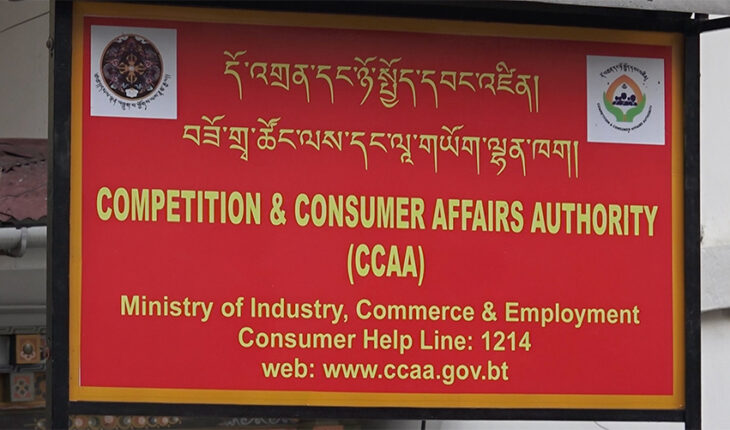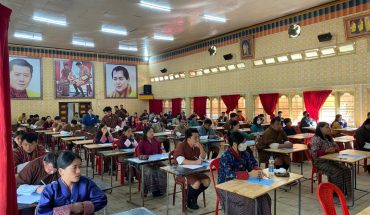
NGAWANG JAMPHEL
Thimphu
A recent study carried out by the Consumer Empowerment and Economics Division of the Competition and Consumer Affairs Authority (CCAA) has found that many private educational institutes in Thimphu do not have student-friendly Terms and Conditions (T&Cs). The research, which reviewed 10 randomly selected schools out of 62 private institutes in the city, found that while many schools make their T&Cs available to students and parents, the details are often vague or unfair. This puts students and their families at risk of unexpected financial burdens and unclear service commitments.
One major concern highlighted in the study was the lack of transparency in fee structures. While 90% of the schools provided access to their terms either online or in print, only 60% fully disclosed tuition fees. Many left out important costs like textbooks, school uniforms, and extracurricular activities. This often led to parents being surprised with hidden charges after the school year had already started. Furthermore, only 70% of the schools clearly explained key terms such as refund and withdrawal policies. The rest used confusing language, making it hard for parents to understand their rights or compare between schools.
Refund policies, in particular, were found to be unfair in many cases. Only 30% of schools allowed students to withdraw within a reasonable period without facing large penalties. Some schools did not offer any refunds at all, and several charged high cancellation fees even when the student had not attended a single class. In addition to this, registration fees varied greatly—from as low as Nu. 2,000 to as high as Nu. 10,000—and were non-refundable in most schools. Penalties for late fee payments were also a concern. While some schools allowed families to pay in installments, others demanded full fees upfront. In many cases, late payments attracted increasing fines, which created additional pressure on families, especially those with limited income.
The quality of education was also found to be poorly defined in the T&Cs. Only 40% of schools clearly mentioned their facilities and teacher qualifications. Most did not provide such details, making it difficult for parents to know what to expect. While nearly all schools followed national standards for accreditation, 10% did not even mention their accreditation status in their documents. Also worrying was the fact that none of the schools guaranteed that the courses they offered would be continued without changes. This leaves students uncertain about the stability of the programs they enroll in.
Another serious issue raised in the report was the lack of attention to student rights. Most schools did not include any clauses accepting responsibility for poor service or negligence. None of the institutions had clear rules for what happens if they fail to deliver quality education. Moreover, only 40% of the schools provided advance notice of changes to their policies, which means that parents and students could be affected by sudden decisions without warning.
Perhaps one of the most concerning findings was the total absence of data protection policies. Not a single school explained how they collect, store, or use student data. There were no rules about getting consent for sharing data with third parties, and no information about how long data is kept or how it is eventually disposed of. This puts the personal information of students and their families at risk.
The study also revealed that students with disabilities or special needs are not supported in any of the institutions surveyed. No school had specific policies to accommodate these students. Only one school offered an option for online or remote learning, and very few allowed flexibility in class timings in emergencies. These issues became especially noticeable during the COVID-19 pandemic, yet schools seem to have made little progress since then.
When it comes to complaints and disputes, more than half of the schools had some kind of process in place, but 30% had no information at all about how to handle complaints. This means that students and parents could face difficulties when trying to resolve problems with the school.
To solve these problems, the report made several key recommendations. Firstly, it suggested that the government create a standard Terms and Conditions template for all schools to follow. This would ensure that important information such as fees, refund rules, and student rights are clearly stated and understood. Secondly, refund policies should be improved to include full refunds before classes begin and partial refunds after withdrawal based on how much of the course was completed.
The report also recommended that late payment fees be capped and that no hidden charges be allowed. Schools should be required to notify students in advance before making changes to their programs or schedules and offer refunds or alternate options if changes negatively affect students. Schools must also be made to include a proper dispute resolution process involving fair and neutral methods such as mediation or arbitration.
Perhaps most importantly, the study called for urgent improvements in data protection. Schools should be required to tell parents how student data is used, get their consent before sharing it with others, and delete the data responsibly after use. Finally, the report urged schools to introduce policies to support students with disabilities and special needs so that every child can access education equally.




